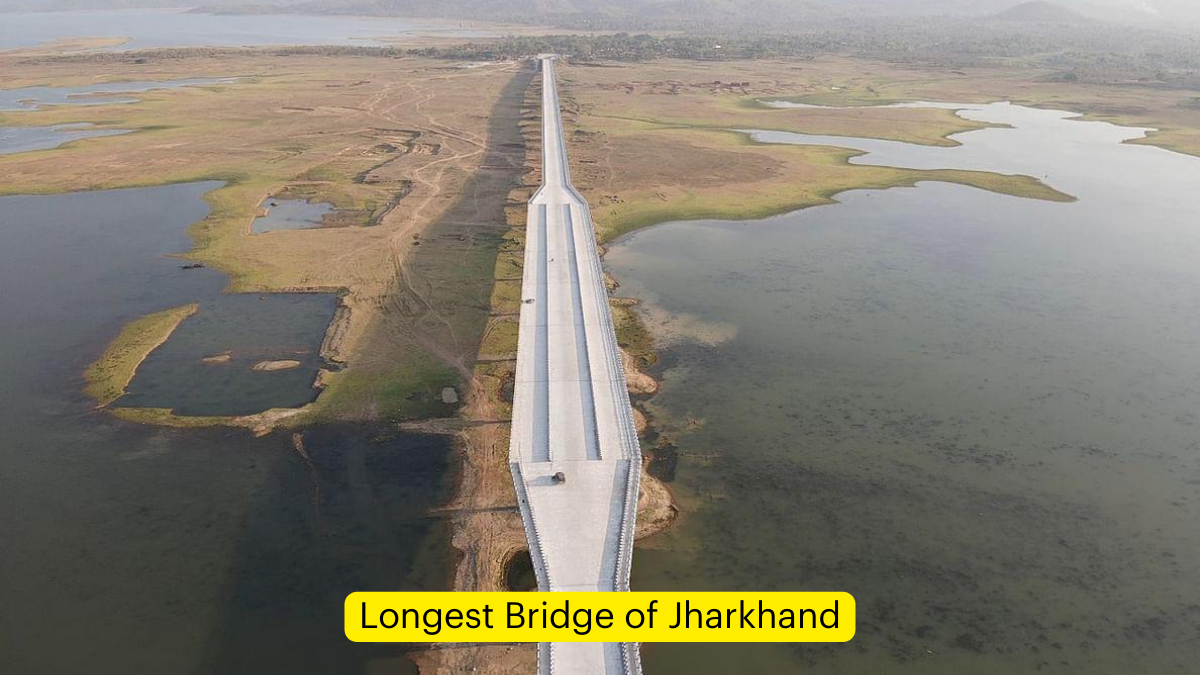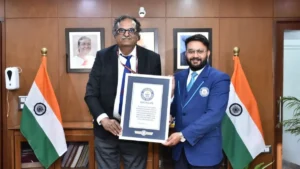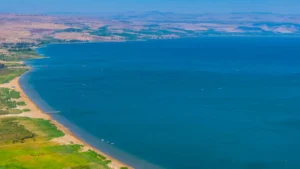Introduction
In the heart of eastern India lies the state of Jharkhand, known for its rich mineral resources and diverse landscapes. Among its many infrastructure marvels stands the longest bridge in the state, a testament to modern engineering and a vital link for thousands of people. This article delves into the details of this impressive structure and its significance for the region.
The Bridge at a Glance
Name and Location
The longest bridge in Jharkhand is the Netaji Subhash Chandra Bose Setu, also known as the Ranchi-Patratu Dam Road Bridge. It spans across the Patratu Dam Reservoir in the Ramgarh district of Jharkhand.
Key Facts
- Length: 2,764 meters (approximately 1.7 miles)
- Width: 12 meters
- Lanes: 4-lane carriageway
- Construction period: 2012-2018
- Cost: Approximately 325 crore rupees
The Engineering Marvel
Design and Construction
The Netaji Subhash Chandra Bose Setu is a modern cable-stayed bridge designed to withstand the challenging terrain and weather conditions of the region. Its construction involved:
- Advanced materials: High-strength concrete and steel
- Innovative techniques: Cable-staying technology for better support
- Environmental considerations: Minimal impact on the reservoir ecosystem
Challenges Overcome
Building such a long bridge over a water body presented several challenges:
- Geological stability: Ensuring a solid foundation in the reservoir bed
- Weather conditions: Dealing with monsoon rains and high winds
- Logistics: Transporting materials to the remote location
Significance for Jharkhand
Improved Connectivity
The bridge has significantly reduced travel time between Ranchi and Hazaribagh, two important cities in Jharkhand. What once took hours now takes minutes, benefiting:
- Commuters: Faster and safer daily travel
- Businesses: Improved logistics and transportation
- Tourists: Easier access to attractions in both cities
Economic Impact
The Netaji Subhash Chandra Bose Setu has become a catalyst for economic growth in the region:
- Industrial development: Attracting new industries to the area
- Job creation: Both during construction and through increased economic activity
- Tourism boost: The bridge itself has become a tourist attraction
Social Benefits
Beyond economics, the bridge has brought about several social improvements:
- Better access to healthcare: Faster routes to hospitals in Ranchi
- Educational opportunities: Easier commute for students to educational institutions
- Cultural exchange: Increased interaction between different communities
A Day in the Life of the Bridge
Morning Rush
As the sun rises over the Patratu Dam Reservoir, the bridge comes alive with the morning traffic. Commuters from nearby towns and villages stream across, heading to work in Ranchi or Hazaribagh.
Midday Calm
The bridge experiences a lull during midday, with occasional trucks and tourists crossing. The panoramic views of the reservoir and surrounding hills attract photographers and nature enthusiasts.
Evening Return
As evening approaches, the bridge again bustles with activity. Commuters return home, while others head out for social engagements in the cities on either side.
Maintenance and Future Plans
Regular Upkeep
To ensure the longevity of this crucial infrastructure, regular maintenance is carried out:
- Structural inspections: Checking for any signs of wear or damage
- Surface repairs: Maintaining the road surface for smooth traffic flow
- Lighting and safety features: Ensuring all systems are functioning properly
Future Enhancements
There are discussions about further improving the bridge and its surroundings:
- Beautification projects: Adding aesthetic elements to enhance its appeal
- Viewing platforms: Creating designated spots for tourists to enjoy the scenery
- Smart technology integration: Implementing traffic management systems




 India, Bangladesh Among 40 Nations Hit b...
India, Bangladesh Among 40 Nations Hit b...
 NBEMS Sets Guinness World Record for AI ...
NBEMS Sets Guinness World Record for AI ...
 Which Sea is known as the Lake of Tiberi...
Which Sea is known as the Lake of Tiberi...








